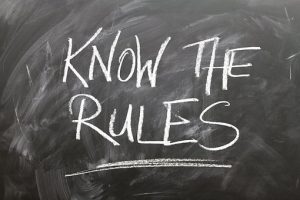Reverse Mortgage Requirements
A reverse mortgage is a way for homeowners to access the equity in their home. Below are a few factors that go into determining eligibility and how much money can be received.
- The youngest borrower on the title must be at least 62 years old.
- The home must be the primary residence.
- The borrower must own the home and have significant equity in the home.
FHA/HUD Requirements
The following are some of the important rules for prospective borrowers:
- The borrower is required to complete a financial assessment to evaluate the borrower’s ability to meet their financial obligations before loan approval and closing. During the assessment, the lender will verify credit and income.
- The borrower must meet with a Department of Housing and Urban Development (HUD)-approved reverse mortgage counselor before applying for a reverse mortgage. The reverse mortgage counselor will discuss how a reverse mortgage works and the associated costs.
- The borrowers may access the greater of 60% of the principal limit amount or all mandatory obligations (as defined by the HECM requirements) plus an additional 10% during the first 12 months after loan closing. The combined total of mandatory obligations plus 10% cannot exceed the principal limit amount established at loan closing. In some instances, the borrower may also need to set aside additional funds from the loan proceeds to pay for taxes and insurance.

Borrower Requirements
Once the requirements above have been met, there are a few obligations the homeowner will need to satisfy throughout the life of the loan.
- If the borrower still has a mortgage on the home, it must be paid off using the proceeds from the reverse mortgage loan.1
- The borrower must reside in the home as their primary residence, continue to pay the required property taxes, and homeowner’s insurance and maintaining the home according to FHA requirements.1
Spouse Protection
A big concern among borrowers is what happens to the home in the event the borrowing spouse permanently leaves the home.
- A co-borrowing spouse can remain in the home if the older spouse passes away without needing to pay the loan back in full as long as they continue to pay taxes and insurance.
- A non-borrowing spouse also has protection. Although a non-borrowing spouse won’t receive payments after their spouse passes, they can remain in the home as long as they continued to meet the loan obligations.
Benefits of a Reverse Mortgage Loan
Since a reverse mortgage is insured by the FHA,2 they are considered non-recourse loans, which is important information to know when it comes time to pay back the loan. Having a non-recourse loan means that neither the borrower nor their heirs will ever owe more than the loan balance or the value of the property, whichever is less; and no assets other than the home must be used to repay the debt.
If you still have questions or concerns about the reverse mortgage rules, please contact (800) 976-6211 to speak with a licensed loan advisor.
Disclosures:
1 Your current mortgage(s) and any other existing liens against the property must be paid off at or before closing. You must live in the home as your primary residence, continue to pay required property taxes, homeowners insurance, and maintain the home according to FHA requirements. Failure to meet these requirements can trigger a loan default that may result in foreclosure.
2 As required by the Federal Housing Administration (FHA), you will be charged an initial mortgage insurance premium (MIP) at closing and, over the life of the loan, you will be charged an annual MIP based on the loan balance.
